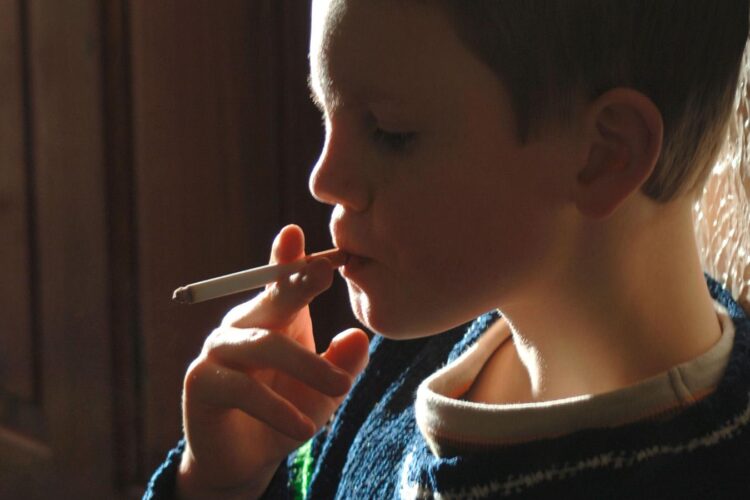By Tony O’Reilly-
A radical policy which would stop children from being able to buy tobacco products for the rest of their lives could be introduced in Northern Ireland, it has bene revealed.
The Irish Health Minister, Robin Swan, has suggested raising the minimum age for purchasing tobacco each year by one year in order to redress the trend of death and ill health caused by smoking in Northern Ireland.
Such an idea could set a precedent for other parts of the Uk in the challenge of combatting under age smoking, which has for years been a danger to the national health, and contributed to the high rates of adult smoking , both in Northern Ireland , and the rest of the Uk.
Last month, plans were expressed in Westminster to raise the legal smoking age to 21, and place new taxes on tobacco companies could be announced on Thursday, amid splits in government over the radical recommendations.
The idea was endorsed by the then health secretary, Sajid Javid, but never got off the ground before he resigned from Boris Johnson’s government.
Around 340,000 people over the age of 16 in Northern Ireland smoke, with an estimated 80% reporting they started smoking before they turned 16.
Smoking is notorious for its contribution to many cancers, heart disease, bronchitis, lung failure, asthma, and stroke, which causes around 2,400 deaths each year
The recommendation was made by Dr Javed Khan OBE that the UK Government raise the age of sale for purchasing tobacco each year by one year.
Dr Khan, who led a recent independent review into smoke free policies. The review looked specifically at tobacco control policies in England and made a series of recommendations to help the government reach targets aimed at reducing tobacco use.
These included increasing the age of sale by one year, every year, offering vaping as a substitute for smoking, and for the NHS to prioritise further action to stop people from smoking.
Independent MLA Claire Sugden asked Mr Swann in a written Assembly question what consideration has been giving to raising the minimum age for purchasing tobacco each year by one year.
The UUP minister said: “The aim of the recommendation is to create a tobacco free generation where young people below a certain age are legally prevented from buying tobacco products throughout their entire lifetime.
“Whilst the Khan recommendations do not relate directly to Northern Ireland, the recommendations, along with the UK Government response, will be considered within a Northern Ireland context, particularly during the ongoing review of our tobacco control strategy and in the development of our subsequent strategic approach.
“I am keen to explore all avenues that reduce the unacceptable harm and health disparities caused by smoking.”
Commenting on the minister’s response on the subject, Barbara Roulston from Cancer Research UK, said: “We have a duty to prevent the next generation from suffering a lifetime of addiction, ill health, and even premature death.
“We have been calling for the publication of a new and wide-ranging tobacco control strategy for Northern Ireland by 2023, which includes a commitment to a smoke free target for Northern Ireland by 2035 and measures and services to prevent people from starting to smoke and help people who do to stop.
“Within that strategy we would welcome recommendations and a consultation on raising the age of sale for tobacco.”
A number of laws have been introduced in a bid to tackle smoking prevalence, including a ban on smoking in public places, which came into operation in April 2007.
Rates of childhood obesity have risen sharply in recent years and inequalities have widened in the Uk, and smoking remains persistently high among those living in more deprived areas. Alcohol-related hospital admissions and deaths have increased and rates of harmful drinking have gone up. Physical activity levels also remain low and appear to have declined during the pandemic.

